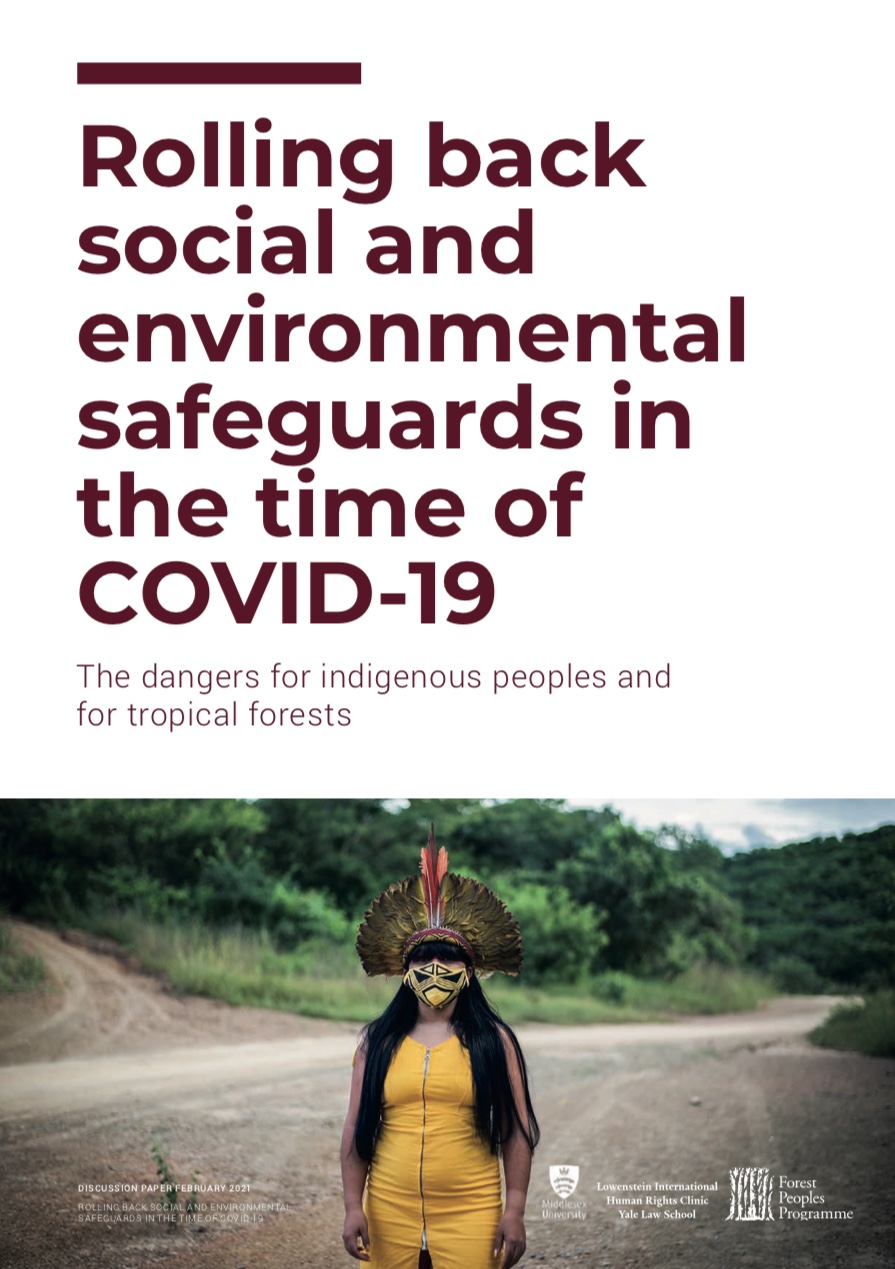Resource information
This crucial report demonstrates how states and other actors are using the COVID-19 pandemic as an opportunity to roll back social and environmental safeguards. In doing so, they are eroding the rights of indigenous peoples in the five most tropically forested countries of the world
Indigenous peoples have protested against actions by states that have used the crisis as an excuse to erode their rights while failing to provide indigenous peoples with the support and assistance they need to deal with the pandemic. In their responses, many governments have increasingly criminalised indigenous human rights defenders or legitimised or even facilitated the threat and use of violence against them. These actions clearly demonstrate the continuing lack of accountability of states, and the lack of respect of businesses, for the rights and wellbeing of indigenous peoples. Indigenous peoples’ lack of access to justice is present at all levels—local, national, regional and global, and it allows this culture of impunity to prevail.
This report highlights indigenous peoples' realities and their efforts to protect their territories, livelihoods and way of life during the pandemic in the face of extraordinary difficulties. It also emphasises indigenous peoples’ calls for the respect and protection of their right to self-determination, particularly self-governance of their territories. The exercise of this right enables indigenous peoples to strengthen their social cohesion and resilience, to practice their sustainable livelihoods, maintain their indigenous food systems, and to ensure the stewardship of biodiversity in their territories which is critical in preventing future pandemics.
Many indigenous peoples rely on already fragile ecosystems for their sustenance, survival, culture and dignity. The respect and protection of the rights of indigenous peoples to their lands, territories and resources, and to self-governance, is indispensable for the sustainable management of our planet’s limited resources. The respect and protection of these rights is therefore not only essential for their survival, but for the survival of us all in overcoming this crisis.
Rolling back environmental and social protections in the name of promoting economic recovery is adding insult to injury for indigenous peoples. This step in the wrong direction will further marginalise indigenous peoples and worsen inequality and injustice. It will also exacerbate the global climate crisis. Indigenous peoples, as stewards of nature, will continue to bear the brunt of this man-made problem.
Indigenous peoples, social movements, and civil society organisations should strengthen solidarity and cooperation to oppose the unjust actions that governments and businesses are taking in the name of economic recovery. The pandemic can never be an excuse to trample upon human rights and destroy our planet. Instead, the pandemic must serve as a catalyst for transformative change, ending the over-exploitation of natural resources, advancing a ‘just transition’, addressing inequality within and between nations, and guaranteeing the rights of all, including indigenous peoples. Likewise, indigenous peoples’ values—of solidarity, upholding the common good, cooperation, caring for each other, reciprocity and nurturing nature for future generations—should underpin all recovery actions.

